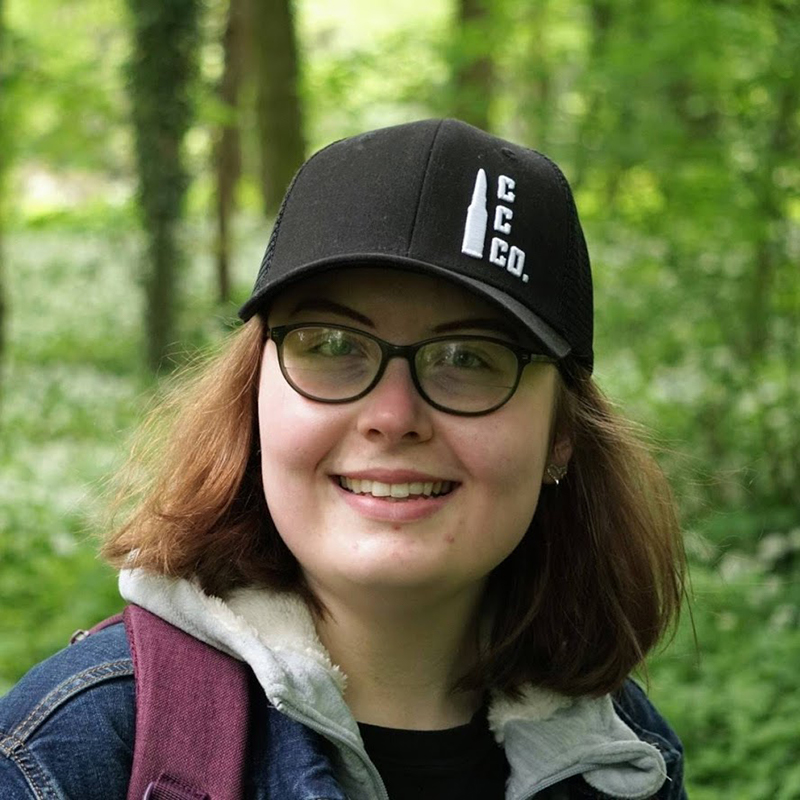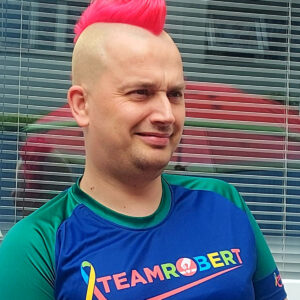Allie Mason: One big adventure

During lockdown, Allie Mason found herself watching Bear Grylls: World’s Toughest Race which sees a team of intrepid individuals race across the landscape of Fiji tackling rivers, jungles, waterfalls, and cliffs.
While these testing environments on a small, indigenous island in the South Pacific Ocean are far away from the 23-year-old’s quiet village residence in Gloucestershire, her interest in adventure sports comes from close to home.
Her brother Josh is someone who will take every opportunity to try extreme activities, a daring mindset that she envies on face value, but in reality she would rather keep her feet on the ground.
Allie has instead set out on something a little more comfortable – to write a book on the relationship between autism and adventure sports, having found out she was on the autistic spectrum last year.
After lots of independent research into the subjects, the book (which currently has a working title) is scheduled for release in late 2022.
But she recently found out she will have her own adventure experience to tell come August, after her brother secretly signed Allie and her boyfriend up to a coasteering session that will take place on a family holiday in Wales.
“My personal relationship with adventure sport has always been admiration from a distance, and I watch in awe as to how these people can push their bodies and minds to the limit,” said Allie, who works as a training and development officer for the National Federation of Young Farmers’ Clubs.
“I’ve always wanted to do adventure sports; I’ve just not had the confidence or the awareness of the support that I need to do those things. But writing this book is giving me that belief.
“Coasteering absolutely terrifies me, but I’m going to do it. I’m probably going to scream really loudly when I jump off the cliff, but it will be a very pivotal moment for me.
“The book will hopefully make it clearer to the world that autistic people can do it, they just need to think about the routines, structures, and all the things that we know are good for the way our brains work.
“Once you have that in place, you should have a go and see what you might achieve, and you might surprise yourself.”
Even if participating in adventure sports is something that will be new to Allie, a passion for interesting and endearing challenges is ingrained in her personality.
After regularly roller-skating when she was young, Allie has signed up to complete the 2022 BMW Berlin Marathon on inline skates, aiming to blog her journey and raise funds for Ambitious about Autism.
“The lockdowns [due to the COVID-19 pandemic] have really brought home to me that if you don’t try to do the things that you want to, you’ll get to the end of your life having a to do list a street long because you never got round to any of it.
“My overall plan is to focus on the skills and the technique for this initial period over the summer to try and optimise my training – if you have bad technique and try to push yourself long distances, it’s going to be so much harder than if you have nailed the technique in the first place.
“I tried going skating when my boyfriend does the dog walk in the evenings. But the issue is that I’m the dog’s favourite person, so the minute she loses sight of me she is running and almost tripped me over several times.
“Also, everybody is there on a nice sunny evening in the park, and my braking skills are not up to scratch yet.
“The 6am get-ups, when it is cooler and the parks are less busy, are going to have to be a real thing and I will have to get into that routine.
“Then hopefully by the time we come on to next summer, I would have been doing regular long-distance skates and I am as prepared as I can be for the marathon.”
“The book will hopefully make it clearer to the world that autistic people can do it, they just need to think about the routines, structures, and all the things that we know are good for the way our brains work.”
Allie Mason
Like her book, Allie hopes her marathon mission will enhance her self-confidence. But it also prompted the question – are there other people with autism who are achieving in sport?
The answer: yes.
“My starting inspiration for getting involved in sport was because of the barriers I faced as an autistic person, and especially when not knowing I was autistic and not realising that that was why those barriers existed.
“I always say that I’m going to do things, and then I don’t. Sometimes it’s genuinely because there are barriers, but sometimes I don’t believe in myself and it’s easier to stay where I am rather than try something new.
“Before I came across Spautism, which introduces me to new people who I look up to all the time, I really struggled to find autistic people who were getting involved with sports and athletics at a high level and who I could have as role models.
“The only way was Google; I don’t have a vast community of autistic friends who I can talk with to find out who I should be following.
“One of the first people that I ever found was Clay Marzo – a surfer in the USA. He just knows what he wants and goes for it and that’s the mindset I want.
“A benefit of being autistic is that you already have that focus and determination, and once you have the routine and structures in place to make something happen, you’re away.”
To supplement her skating plan, Allie is taking up rowing to build cardiovascular fitness and full-body endurance. She also played her part last week (28th June to 4th July) in The Big Row, organised by Bernie Hollywood OBE and Love Rowing.
She has been able to do this with the support of Just Row Gloucestershire – a local charity with a mission to remove barriers, improve access, and get more people into rowing.
So far, Allie has largely been rowing on the machine in her garage after lockdown restrictions and then bad weather delayed her getting in a boat. That was until one sunny Friday in June.
“I had a fabulous time out on the water and was looking forward to going back straight away.
“The movements felt very different in a boat than on the rowing machine and it took a lot of concentration for me to get them right. My coach said that she could see me going through the thought process of each individual part of the stroke.
“But it can be such a peaceful experience on the water, especially as the rhythm of rowing is really good for the autistic brain in terms of being calming on our systems.
“If you are interested in rowing but you don’t want to be on the water or around other people or have a coaching relationship, as long as you watch the videos from the British Rowing Foundation to ensure you have got your technique right, you can still gain lots of benefits from the gym, the garage, the garden, or wherever you fit a machine.
“When I have been skating or rowed in the garage, what has really struck me is how that moment of focus on what you are doing means that everything else you were worried about falls away.
“I heard a lot of people say that once you get in your pace and you are focusing on whether your breathing is right, you stop thinking about your worries and genuinely exist in that moment.
“That’s been, quite frankly, liberating.”


